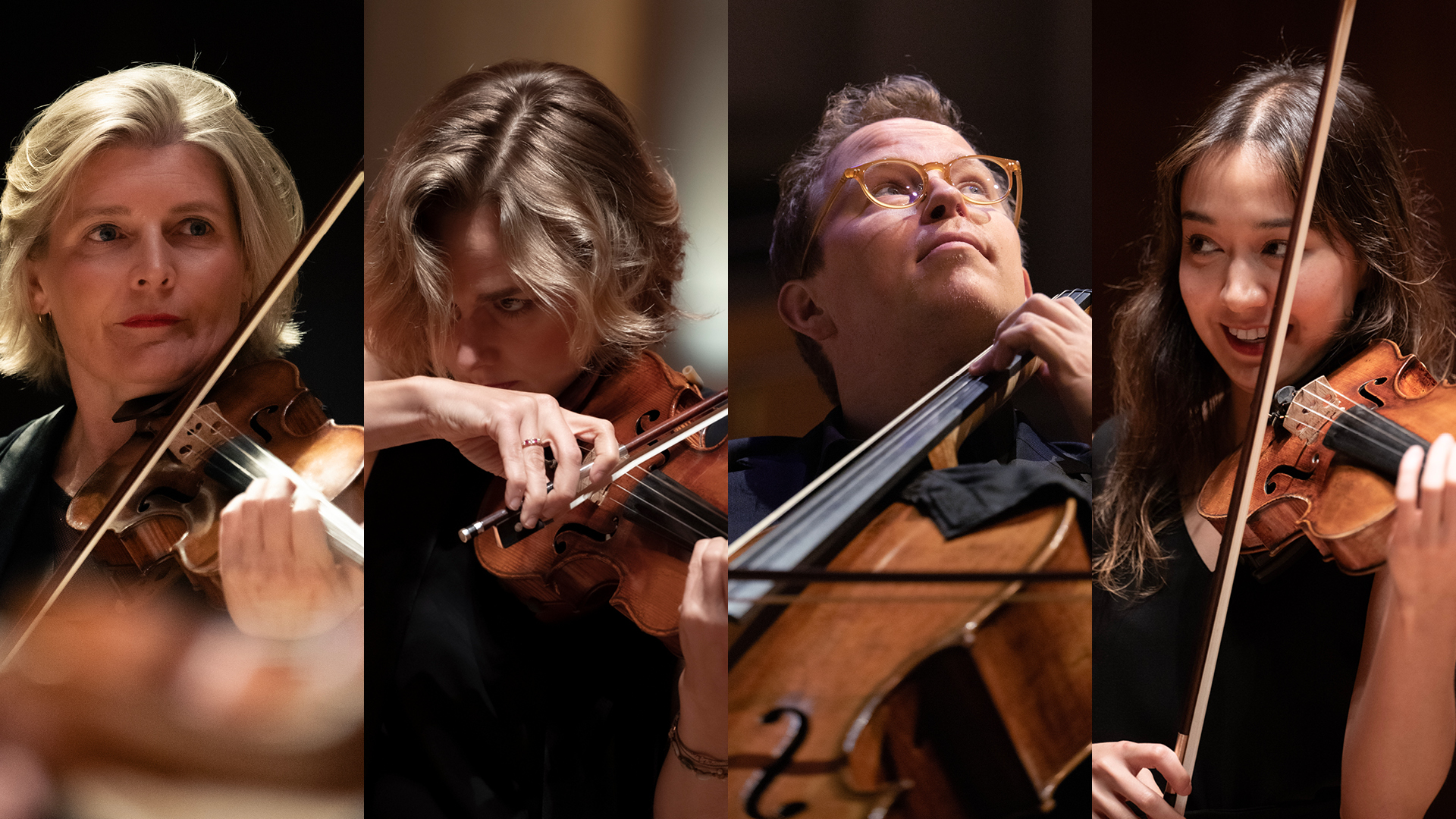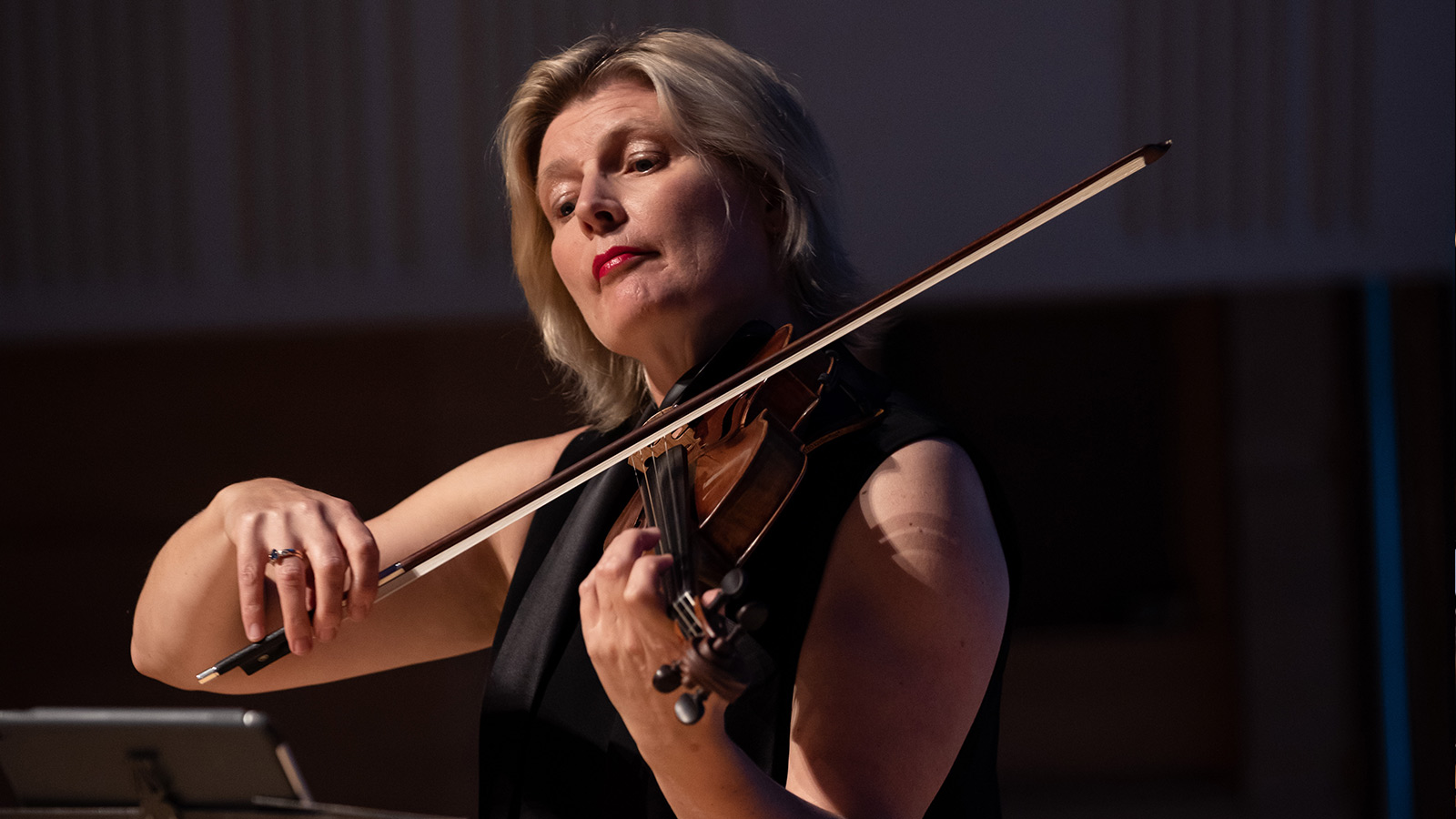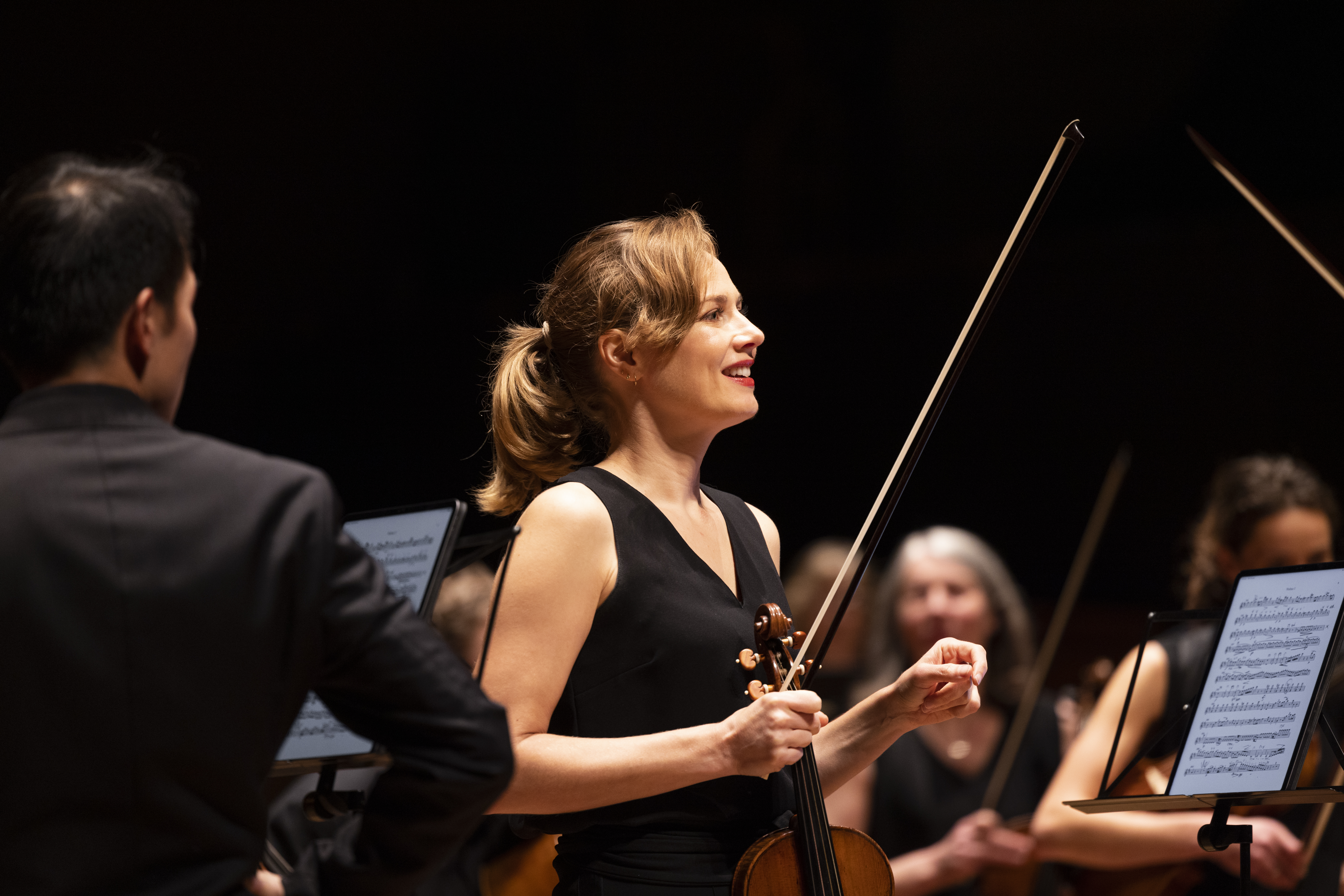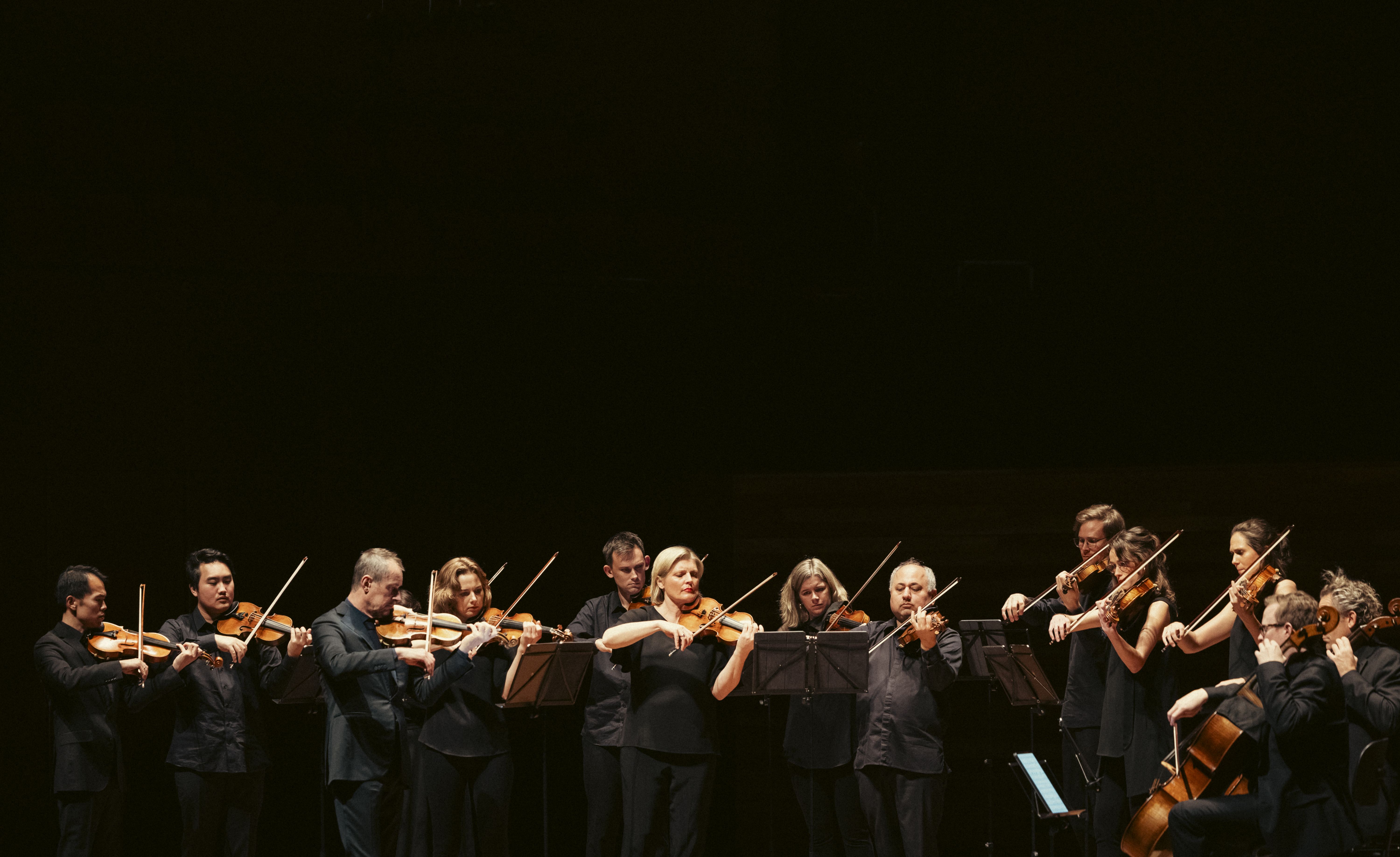
By Bernard Zuel
When Richard Tognetti says, “we live dangerously as a collective of individuals”, he isn’t really puffing up the Australian Chamber Orchestra in its 50th year. He has the evidence right before him to prove it.
In the dying days of May, when Patricia Kopatchinskaja – the renowned Moldovan violinist who was to have guest-directed and performed in the ACO’s June tour Death and the Maiden Revealed – withdrew from the tour with an injury, the Orchestra had only days to devise, prepare and roll out a new program whose first notes would ring out in just three weeks.
Tognetti was already committed elsewhere so he couldn’t step in, and the centrepiece of the program, Schubert’s Death and the Maiden, had to be excised for later use. But the ACO’s solution to this urgent programming dilemma is remarkably in keeping with not just the spirit of the year-long anniversary celebration of this organisation but with its very essence: nimbleness, deep connection to the works, renewal and individual virtuosity within the collective.
Among the new selections are a Ravel showpiece featuring Principal Violin Satu Vänskä and a Finnish homecoming for Principal Cello Timo-Veikko “Tipi” Valve. Principal Violin Helena Rathbone joins Vänskä and newest ACO member Anna da Silva Chen as soloists for a Bach triple concerto and the Orchestra will also perform Tognetti’s string orchestra arrangement of Beethoven’s 'Serioso' string quartet.

Within the practical in those selections is also the intimate. The Cello Concerto by the late Finnish composer Jaakko Kuusisto was completed shortly before he was diagnosed with an aggressive brain cancer in 2020. It was forwarded to Valve, who had already sought to commission a work from his countryman, though time and distance intervened.
“Jaakko was keen to write something for me; he was, after all, my ex-brother-in-law and our two families had always remained close,” Valve explains. “I have had the joy of collaborating with Pekka, Jaakko’s little brother, extensively over the years. Jaakko was also present, especially early on in my career, helping me navigate through some of the hurdles a young musician might face.”
Three years after Kuusisto’s death, it’s not surprising Valve says that playing these notes holds a special significance. “Jaakko’s voice is in every melody, every harmony,” he says. “And while we can’t have a conversation with him anymore, somehow, playing this piece comes close.”
“When Richard Tognetti says, “we live dangerously as a collective of individuals”, he isn’t really puffing up the Australian Chamber Orchestra in its 50th year. He has the evidence right before him to prove it.”
Elsewhere in the program, where the personal is not as direct, something different animates the choices. “Ravel’s Tzigane is something that is in Satu’s repertoire and she knows it really well but hasn’t played it with the ACO,” says Tognetti. “So it’s actually a great opportunity to showcase, to spotlight, Satu’s virtuosity. And it’s rare that we have Helena and Satu on stage in directing roles at the same time, so this just shows the strength of the Orchestra.”
In that rarity, how does he see Vänskä and Rathbone differing in their approach to directing and playing?
“It’s probably best to ask them, ha!” he says, laughing. “They are very different players, but they are incredibly complementary to each other, and complimentary of one another. They come from different parts of Europe: Hellie comes from the highly respected British string tradition where there’s a real focus on chamber music, while Satu studied at an elite soloists’ class in Germany.
“But now they speak the language of the ACO, and have very much imbibed all the things that I’ve brought to bear on the group, including an acute awareness of the early music movement, contemporary music, electronic music and so forth.”
The third soloist for the Bach is the newest member of the ensemble, da Silva Chen. Though as Tognetti explains, “new” is a relative term with a musician such as da Silva Chen, who participated in the ACO Academy program in her early teens, before she was selected as an ACO Emerging Artist.

This process of assimilating, of absorbing and being absorbed in, of becoming someone who has imbibed, as Tognetti puts it, the ACO’s philosophy as much as its style, is as vital now as it has been at any stage of the Orchestra’s 50 years.
“We have to put them through their paces. We need to see if they are technically up to it, if they are psychologically suited,” he says of the audition process. “Something that I want to do more of with our Emerging Artists is to throw them in the deep end with different types of contemporary music. So you’ve got to be aware of all of those things and embrace all of those challenges.”
“Jaakko’s voice is in every melody, every harmony,” he says. “And while we can’t have a conversation with him anymore, somehow, playing this piece comes close.”
If anyone reading this is thinking of a late-life conversion to being a professional musician with the ACO, be aware of the rigours of selection. “I’m glad – I hope – I don’t have to go through the process [of auditioning for an orchestra] again,” says Tognetti. “You do an audition, and if you pass this, while you’re still a long way from getting the job, you are in pole position. Then you have a trial and then, if you manage to get through that phase, you go on to what’s called the probation, which means you are closer to getting the job. And then after that probation – and I’ve heard of them going on for up to five years around the world – then you are eventually given the job.”
Once all those challenges have been embraced and standards met, is there a final ceremonial moment? Perhaps a presentation, as with the Australian cricket team, of a baggy black cap to confirm entry into the family?
“Absolutely, we have a big party,” Tognetti says. “For example, we committed Anna to the institution of the ACO in Germany, in Stuttgart. There was a beer hall which should have a seat named after her.” Then presumably everyone took the new member off to get the official ACO tattoo? “Tattoo is good,” he says. “I like it, I like it!” (I apologise to all future ACO members, or for that matter any current members who will have to retrospectively ink up.)

For all the jocularity, this program – quickly assembled but deeply rooted in the Orchestra’s life – is evidence that this demanding process guarantees there is complete trust in one other’s ability to adapt and flourish with three weeks’ notice. Astonishing really – after 50 years, one might think that things might become stale, perhaps formulaic.
But of course that hasn’t happened. Each refreshing of the ACO is both a challenge and a rejuvenation. “Yes, exactly. Exactly!” says Tognetti. “And each new player brings a new type of energy.”
By Bernard Zuel
Bernard Zuel is a Sydney-based arts writer, specialising in music, and a lecturer in journalism at Sydney University. He worked for The Sydney Morning Herald and The Age for 25 years and was the SMH’s senior music writer and critic. As well as a founding, and continuing, judge of the Australian Music Prize, co-host of the online music program, The Right Note, and host of a podcast on music pioneer, Harry Vanda, he is a frequent contributor on television and radio.
ACO Unleashed tours to Canberra, Melbourne, Adelaide, Perth, Sydney and Brisbane, 21 Jun – 2 Jul. Click here to book tickets.
